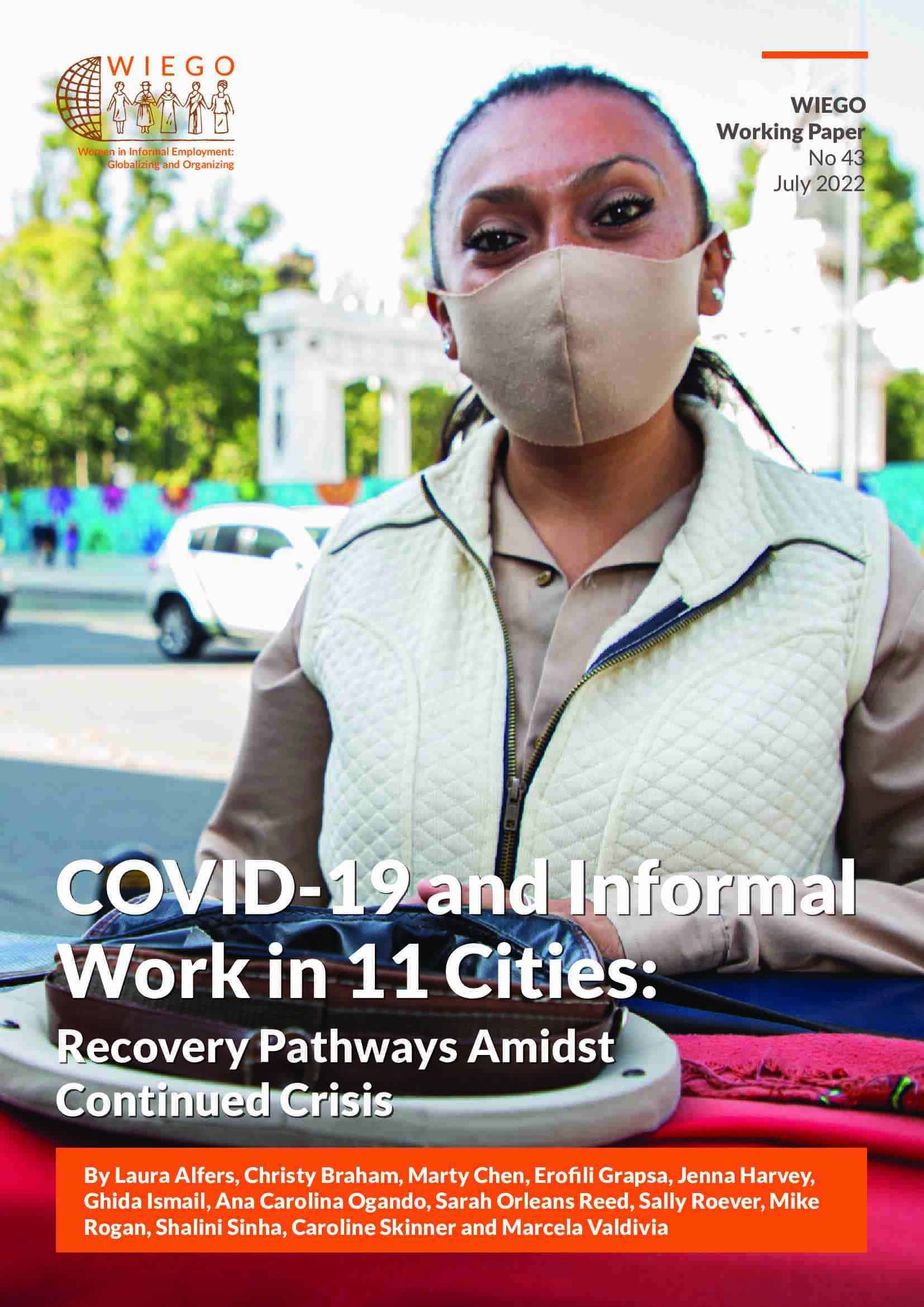COVID-19 and Informal Work in 11 Cities: Recovery Pathways Amidst Continued Crisis
The majority of the global workforce – 61% – is informal and has been disproportionately impacted by measures to prevent the spread of COVID-19 and by the accompanying economic downturn. The focus on aggregate job and livelihood losses masks the multiple drivers behind these losses that are leaving labour markets in general, but particularly in developing countries, without a viable path to recovery. The global informal workforce is diverse, and understanding experiences of workers in different contexts and sectors is required to design effective recovery policies. This Working Paper reflects the findings from the longitudinal study of nearly 2,000 informal workers in 11 cities around the world. Surveys and in-depth interviews were conducted with domestic workers, home-based workers, street vendors and market traders, and waste pickers in mid-2020 and then again in mid-2021. The findings reveal the differentiated pathways of impact and thus recovery for different groups of informal workers approximately a year and a half into the pandemic. The study shows that the economic fallout of the COVID-19 crisis remains deep and persistent for workers at the base of the economy.
Also available:
- Long Economic Covid for Informal Workers - Infographic
- COVID-19 and Informal Work in 11 Cities: Recovery Pathways Amidst Continued Crisis - Executive Summary
View list of all: WIEGO Publication Series

